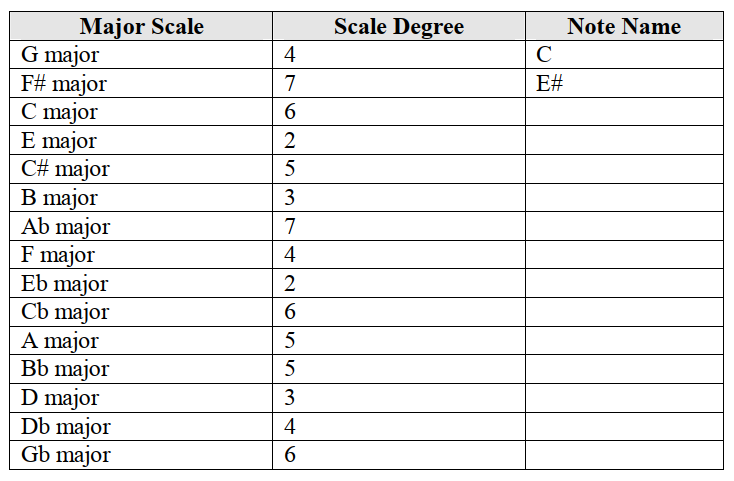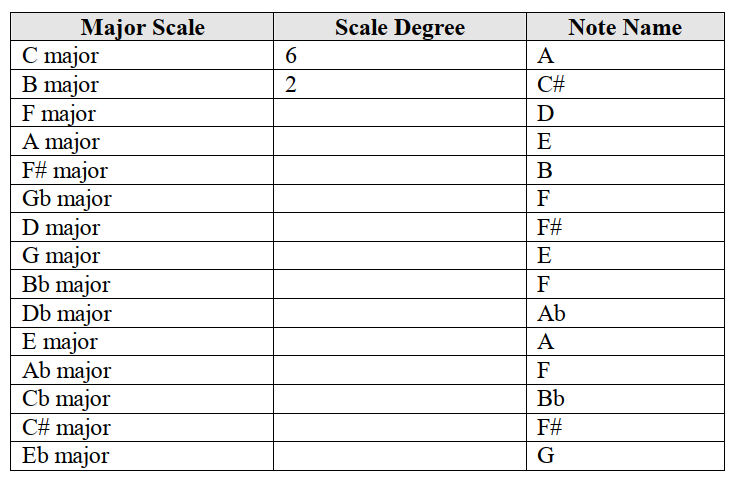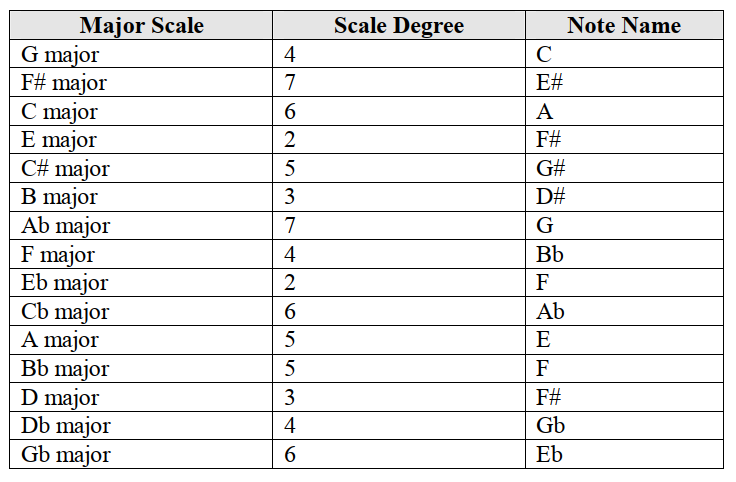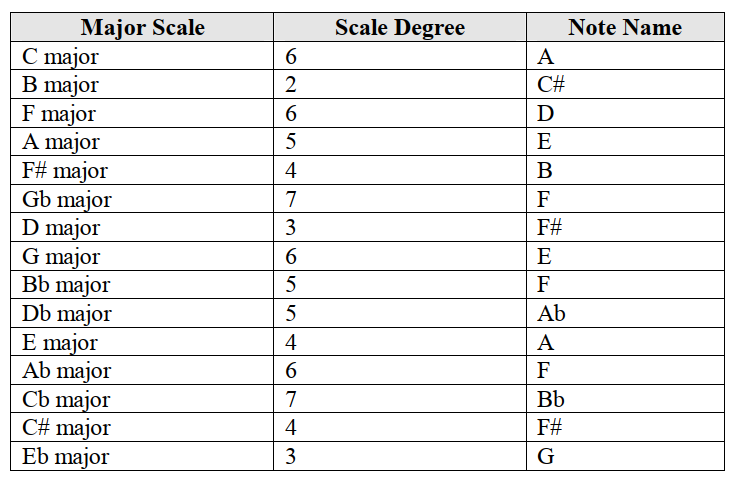In this lesson we’re going to start taking a look at scale degrees, which are very useful things to understand—especially if you intend to develop an excellent knowledge of scales, chords and arpeggios.
So, what exactly are scale degrees?
If you did a search on the internet, you would find lots of different definitions—some of which would be ridiculously complicated…probably written by some musicologist with 127inch thick glasses who can’t even play guitar! In this article and the next we’ll look in detail at my step-by-step method for understanding scale degrees…
- Step One: Understanding the musical alphabet.
- Step Two: Understanding the major scale.
- Step Three: Understanding what the scale degrees of the major scale are.
- Step Four: Understanding scale degrees that aren’t part of the major scale.
OK, let’s look at them one at a time…
Step One: Understanding The Musical Alphabet
If you’re reading this article, then you probably already have some understanding of the musical alphabet. But if you don’t, there’s no need to fret. 🙂
Because I’ve written about this in detail on my other website, I’m going to be lazy and give you links to the following two lessons…
Once you’ve checked out the lessons above, then I’ll meet you back here for the second step…
Step Two: Understanding The Major Scale
Like the musical alphabet, the major scale rears its ugly head repeatedly when learning about music theory. Because of this, I wrote an in-depth lesson about it quite a while ago. And, you guessed it, I’m going to be lazy once again and give you a link to that lesson…
When you’ve finished reading that lesson, then you’re ready for the next step…
Step Three: Understanding What The Scale Degrees Of The Major Scale Are.
The great news is that you’ve already done the hardest part. This step is pretty easy! Check out this table showing the notes of the F major scale…

Notice how there are numbers above each of the notes?
These numbers are the scale degrees!
That’s all they are! Easy huh? Let’s put you on the spot for a second…
Let’s imagine someone said to you, “What is the fourth scale degree of the F major scale?”. What would your answer be?
If you said Bb you would be 100% right! Just to make sure you’ve totally got it, here’s some stuff to do…
ACTION STEP:
Please print out this webpage and fill out the tables below. (If you don’t have a printer, just write your answers down somewhere). Notice that I’ve done the first two rows of each table for you—aren’t I nice! 🙂
Table One: Convert scale degrees to note names…

Table Two: Convert note names to scale degrees…

How did you get on with them? Just in case you had any trouble, I’ve put the answers below…
Here Are The Answers
Here are the completed tables, so that you can check your work…
Table One: Answers

Table Two: Answers

A Very Important Point
As you can see from this lesson, my preference is to use numbers to describe scale degrees. But, like many things in music, there are other ways of looking at things. So you’ll find that other musicians will use names rather than numbers to describe scale degrees. For example, here are the common names for the scale degrees of the major scale…
- The first note of the major scale is called the tonic.
- The second note of the major scale is called the supertonic.
- The third note of the major scale is called the mediant.
- The fourth note of the major scale is called the subdominant.
- The fifth note of the major scale is called the dominant.
- The sixth note of the major scale is called the submediant.
- The seventh note of the major scale is called the leading tone.
Although using these whacky names might impress a few people at dinner parties, I personally think that the numbers 1 through to 7 is infinitely easier to remember. 🙂
A Few Last Words
That’s all for this lesson. In the next lesson we’ll be taking a look at how to understand scale degrees that aren’t part of the major scale. Until then, have fun!
Are You An Auckland Guitarist That Wants To Significantly Improve Your Electric Guitar Playing?
 If you're an Auckland guitarist wanting to improve your guitar playing, then my Auckland electric guitar lessons might be for you. I can help you to the develop technique, musicianship and mindset that will move you closer to how you truly want to play.
If you're an Auckland guitarist wanting to improve your guitar playing, then my Auckland electric guitar lessons might be for you. I can help you to the develop technique, musicianship and mindset that will move you closer to how you truly want to play.
To find out more about exactly how I can help you improve your playing, then download my latest Auckland guitar lessons info pack below...
